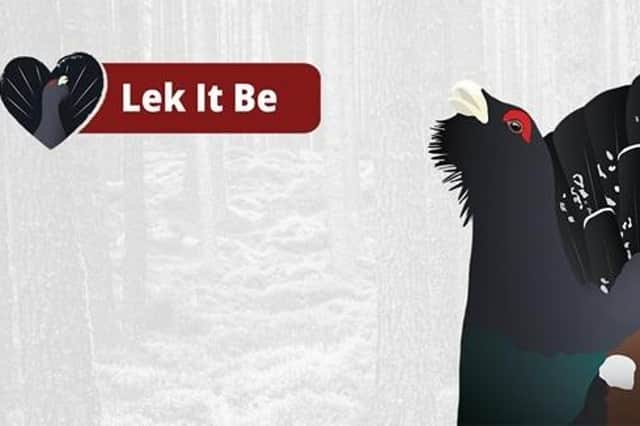Campaign launched to better safeguard one of UK’s rarest birds


The birds are being pushed closer to extinction, with only 542 left in the UK, including a handful of forests in the Cairngorms National Park area.
Disturbance can stop capercaillie from breeding and cause unnecessary stress to the birds, and it is a criminal offence to disturb them while they are lekking, nesting and raising young. Last year, however, birdwatchers and photographers were still found on lek sites in the national park, home to over 85% of the UK capercaillie population, and a birdwatcher was arrested and charged with disturbance.
Advertisement
Hide AdAdvertisement
Hide AdSpearheaded by the Cairngorms Capercaillie Project, efforts to safeguard the birds from disturbance this spring are being ramped-up under the banner of ‘Lek It Be’, which is calling on those who want to do the right thing to play their part and not go looking for capercaillie and call out those who do.
It includes a range of measures including police patrols around lek sites, CCTV and signage. Rangers will also offer alternative capercaillie-friendly routes. Wildlife guides will be asked to not look for capercaillie and invited to become Lek It Be Champions to inspire other commercial operators to also leave the birds in peace. Facebook groups will also be asked to reject photo submissions.
Carolyn Robertson, Cairngorms Capercaillie Project project manager, said: “We’ve identified a number of wildlife guiding companies that currently list capercaillie as a target species for their tours in the Cairngorms during the breeding season. Taking guests to look for capercaillie can reveal sensitive sites to birdwatchers and photographers, which can then become known and widely so if images taken by guests are shared on social media.
“It’s extremely positive to see a few companies with policies in place to not look for capercaillie at all. We’re inviting more to follow suit and become Lek It Be Champions by not looking for capercaillie themselves.”
Advertisement
Hide AdAdvertisement
Hide AdFor more information, follow the campaign using #LekItBe. Commercial operators interested in becoming champions can get in touch at [email protected].
Josh Jones, Editor of BirdGuides and Birdwatch, added: It was shocking to learn that the UK capercaillie population has declined by 51% in the last five years and is at the lowest recorded level since the start of the national survey in 1992.
"The population is now at a critically low level and us birders need to respond to this situation as a community. To make the greatest difference we all need to leave capercaillie in peace this breeding season and avoid the temptation to go looking for them. The decisions we make this spring can influence the rate of decline and there is no question that it is now time for us all to put capercaillie first.”